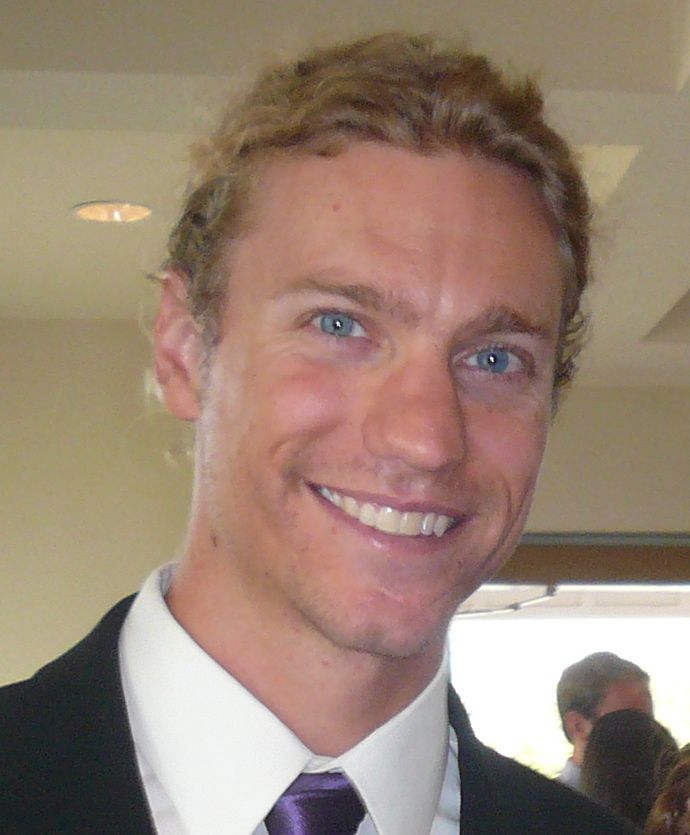A Celebration of the Life of Ben Horne

Memorial Website
Maintain the Light
Memorial Tributes
Remembrances
Ben Horne Memorial Prize Fund
Selected Obituaries
La Jolla Patch
Rice University
CBS Baltimore
San Diego Union Tribune
NBC 7/39 San Diego
Benjamin Christopher Horne was born in the Appalachians. He graduated in 1998 from Thomas Jefferson High School in Alexandria, Virginia, one of the best high schools in the U.S. Ben went on to complete his B.A. in Mathematical Economic Analysis at Rice University in 2002 before working as a United States Peace Corps volunteer for the sustainable economic development program in Kyrgyzstan. During his time in Kyrgyzstan, he taught undergraduate and MBA courses at the American University, Central Asia. He also worked at the Center for Naval Analysis and the World Bank before completing his M.A. in Applied Economics at Johns Hopkins University. In 2007, he moved to San Diego and joined the economics Ph.D. program at UC San Diego.
Many knew Ben as an accomplished triathlete, distance runner and mountaineer. Often, he brought disparate groups of people together to enjoy sports and nature. Ben believed that having a connection with nature was healthy for the individual, society and the environment in general. Ben organized outdoor adventures in hopes of helping his family, friends and acquaintances lead healthy lives with a positive outlook. He also believed a frequent connection with nature can foster a spirit of environmentalism in each and every one of us. Overall, Ben wanted to have a positive influence on the world, and he believed that it was possible to make the world a better place. As he clearly stated in his blog, “I do believe that a better world is coming. My goal is to be the most complete person I can be. Full stop.”
Ben was an avid traveler, who did not just travel to hike or run, but also to learn. Ben traveled to many countries around the world, including Eastern Europe, the Middle East and Central Asia. On foreign travels, Ben dedicated his time to learning as much as he could from the people he met and places he visited. Using a style of travel he referred to as “power traveling,” a combination of minimizing gear while maximizing exposure to the diversity of a locale, he would accomplish in a day what many would need a week to do. He was particularly eager to learn about different religions, cultures and conflicts. His travels and how he traveled reflected how keen he was to understand how the world actually works. He strongly believed that to change the world he had to study it and would often offer a sanitized quote from Henry Rollins, “Knowledge without mileage doesn’t count for much.”
As an academic, Ben was on a mission to make a difference. Ben’s primary field of research was microeconomic theory. He did not study theory for theory’s sake, but to answer real-world questions, many of which were spurred by his travels. His main research interest was to apply theoretical models to better understand conflict resolution. His paper “Conflict, Costly Concessions and Manipulative Mediation” contributes to the formal understanding of why and how mediation works in practice. In another paper, “Inefficient Concessions and Mediation,” Ben examines how a mediator can reduce inefficiencies in conflict resolution when he/she is able to gain the trust of the negotiating parties and assure them that the promised concessions will be delivered. In “Unrecognized States: A Theory of Self-Determination and Foreign Influence,” Ben and his coauthor, Ben Graham, present a formal model that can both explain how unrecognized states are able to persist and evaluate paths to the settlement of these conflicts. One of the motivations for this project is that “[m]any unrecognized states are havens for smuggling and trafficking illicit goods, they are prone to violent conflict, and their very existence challenges the norm of territorial sovereignty”.
Ben passed the summer before entering the job market and his dissertation defense. Thanks to the effort put forth by his advisor, friends and colleagues, Ben’s dissertation research was submitted and he has been awarded a posthumous doctorate in Economics from UC San Diego.
Ben has left us too soon and it is still so hard to believe. But the beauty about Ben is that he left so much to inspire us and so much for us to aspire to. It is easy to imagine how much more he would have done, had he stayed with us longer. We all feel compelled to continue in his footsteps and to support the causes that he was so passionate about.
Beginning Spring quarter, 2013, The Benjamin C. Horne Memorial Prize will be awarded on an annual basis to graduate students in Economics at UC San Diego whose research displays the best potential for real-world application in conflict resolution, development economics or environmental issues. If you would like to contribute to the Ben Horne Memorial Prize Fund, please click here.